Check out these children’s books about OCD. Reading books with OCD characters can feel reassuring to kids experiencing similar symptoms.
My son has had a series of tics since he was little from squeaky sounds to a Tiger Woods arm pump, to an extra hop in his step. There was also a throat-clearing noise and excessive eye blinking. He generally would move from one tic to the next one in smooth succession.
When he had a severe concussion this past year, his neurologist said that he had Tourette’s Syndrome. His psychologist — very helpful for a concussion because it can cause depression and anxiety — said that my son would have to have three tics simultaneously for it to be Tourette’s so he was deemed with just having a tic.
We actually think his tics are cute and it never worried us like his concussion does. We also figured he would outgrow it, which may very well be the case according to this therapist.
This is what I learned about tics, Tourette Syndrome, and OCD:
Tics, Tourette Syndrome, and OCD
Tics are rapid, repetitive movements or vocal utterances. They may be motor (like excessive eye blinking) or vocal (such as a habitual cough or chronic repetitive throat clearing noises), chronic (continuing throughout childhood), or transient (lasting less than 1–2 years). In children who eventually develop tic disorders and ADHD, the ADHD usually develops 2 to 3 years before the tics.
Tourette syndrome, which is quite rare, is a more severe form of tic disorder involving motor and vocal tics that occur many times per day. The average age at which it appears is 7 years. While children with Tourette syndrome may develop ADHD, the 2 disorders are separate and independent conditions. Attention-deficit/hyperactivity disorder is not a variant of Tourette syndrome, and Tourette syndrome is not just a variety of ADHD. Research has shown that chronic tic disorders, Tourette syndrome, and OCD may stem from some common factors, and a child with any of these conditions is quite likely to also have ADHD.
Obsessive-compulsive disorder involves such symptoms as obsessive thoughts (such as a highly exaggerated fear of germs) and compulsive behaviors (for example, excessive hand-washing in an attempt to reduce the fear of germs) that the child is unable to control or limit. In this sense, OCD is similar to tic disorders and Tourette syndrome and creates additional functioning problems for children with ADHD. From HealthyKids.org
One out of a hundred children suffer from OCD (Obsessive Compulsive Disorder). Research indicates that it is due to a chemical imbalance in the brain. From Mr. Worry
Obsessive-Compulsive Disorder (OCD) is a common, chronic and long-lasting disorder in which a person has uncontrollable, reoccurring thoughts (obsessions) and behaviors (compulsions) that he or she feels the urge to repeat over and over. from NIMH
I found that I was misinformed about OCD. Author Wesley King also helped to set me straight:
“Obsessive Compulsion Disorder (OCD) is one of the most common but least understood mental illnesses in the world today. ‘I am so OCD’ has become a popular saying to describe someone who likes things clean and organized. But OCD is not liking things clean or organizing your socks. It’s a constant battle with your mind that can afflict every minute of every day.” OCDANIEL author note by Wesley King
I hope these children’s books about OCD help us all to understand this mental health disease. I am going to keep this list updated as I find more books, and will also link back to book reviews from other bloggers. Thanks for your help in building this list!
Children’s Books about OCD
Anxious Charlie to the Rescue by Terry Milne
Charlie the Dauschaund liked his routines; they made him feel safe and in control. He worried that something bad would happen if he deviated from them. When he had to skip his routines to help a friend stuck in a pipe, he realized that nothing bad happened after all.
It made him realize that the possibilities for consequences can be both good and bad. [picture book, ages 4 and up]
Mr. Worry: A Story about OCD by
This is a great picture book for anyone who wants to understand what it is like to be a child with OCD. It explains why they can’t help checking the same things over and over again. In this story, Dr. Fraser explains how his brain handles doubts and fears.
She teaches him how to “hang up”– the same as if you receive a wrong number phone call — on those doubts and fears using a combination of medicine and cognitive behavior therapy (CBT).
This is a comforting story to understand the battles that children with OCD face in their heads, and the strategies to overcome them. [picture book, ages 4 and up]
How To Make Friends with the Sea by Tanya Guerrero
Pablo’s extreme fear of the ocean started when he was very young; ironic given that his father is a famous marine biologist. And now Pablo feels like he has lost his father after his parent’s divorce and his mother moves them from country to country. His fears and OCD are getting worse but his mother doesn’t seem to notice. When they foster Chiqui, a young orphaned girl with a cleft lip, Pablo discovers that he can face his fears to be the big brother she looks up to. It’s time for him to finally make friends with the sea, and use his voice to save his family … one that includes Chiqui. [middle grade, ages 8 and up]
Cookie Cutters & Sled Runners by Natalie Rompella
From From the Mixed Up Files of Middle Grade Authors blog:
The character, Ana Morgan, in my book Cookie Cutters & Sled Runners, has obsessive-compulsive disorder. She obsesses about germs, and she washes compulsively. At the start of the book, we learn that Ana has OCD. She sees a therapist and seems to be working through her obsessions and compulsions. However, her life faces many changes, and her OCD flares up. [middle grade, ages 8 and up]
Just Roll with It by Lee Durfey-Lavoie and Veronica Agarwal
Review by Ms. Yingling Reads:
“This is very similar to Raina Telgemeier’s graphic novels (Smile, Guts) about anxiety, and somewhat similar to Wang’s Stargazing or Myracle’s Big Sister, so I think it will be popular. The colors are generally somewhat bright, but darker to showcase Maggie’s thought spirals. I really enjoyed the fact that there were a variety of after-school clubs, even though my school doesn’t have those. The people in Maggie’s life are all supportive of her, and she eventually seeks help.” [middle grade, ages 8 and up]
The Someday Birds by Sally J. Pla
Charlie has OCD and possibly also has Asperger’s Syndrome. Accommodating his needs leads his crew on a cross-country trip in search of birds in a circuitous path that finalizes at a hospital in Virginia caring for their brain-damaged father.
While Charlie’s siblings are on this trip — three siblings with their own strong personalities — it’s their caregiver, the mysterious Ludmila whose own backstory they discover throughout the course of their journey, that ties her, indirectly, to their father.
It’s during this adventure that includes meeting an assortment of people that pushes Charlie out of his usual routine and into a quest for both birds and a chance to meet a mysterious ornithologist who inspires him.
Weaving these backstories together to such a satisfying ending is what makes this book Newbery caliber for me. It reminds me of Walk Two Moons and Moon Over Manifest, yet Pla manages to tie even more backstories together which is quite a feat. All the more remarkable that this is her debut book! [middle grade, ages 8 and up]
OCDaniel by Wesley King
Ms. Yingling Reads has a great review here which is how I discovered this book.
This is an almost autobiographical account of the author’s 8th grade when he hid his OCD from everyone. He used ritualized compulsions to try to control anxiety and panic attacks and had no idea what the cause was until he was 16. OCDANIEL deals with fitting in, a girl crush, and discovering the hero within himself. It’s an uplifting story of unlikely friendships. [chapter book, ages 9 and up]
Kat Greene Comes Clean by Melissa Roske
When I set out to write my first middle-grade novel, Kat Greene Comes Clean, I knew Kat would be a fun-loving, cake-eating, Harriet the Spy-reading New Yorker whose mom has OCD. (I’m a fun-loving, cake-eating, Harriet the Spy–reading New Yorker whose dad has OCD.)
I also knew she’d go to a fictionalized version of the ultra-progressive elementary school I attended as a child. Why? Because my alma mater, the City and Country School, in New York’s Greenwich Village, helped shape my identity as a writer—and as a person.
from Nerdy Book Club, Fact vs Fiction: Portraying Middle Grade Memories in a (sort of) Truthful Light.
Ms. YingLing has a review here. In this book, the girl’s mother has OCD:
Kat lives with her divorced mother in Greenwich. She goes to a small, progressive school, and her class is working on a production of Harriet the Spy, and working on a project to go along with that. Kat is paired with Sam, and the two have their ups and downs of getting along.
Her friend Halle is a bit obsessed with Michael, a boy in their class whom she thinks is like her. Normal, everyday stuff– except for the fact that Kat’s mom is obsessed with cleaning, to the point where her hands are badly chapped and she brings antibacterial wipes to the grocery to use on canned goods. [chapter book, ages 9 and up]
The Miscalculations of Lightning Girl by Stacy McAnulty
Books My Kids Read has an excellent review here:
“Stacy McAnulty has managed to capture a number of feelings that kids go through with middle school embodied in the main characters of Lightning Girl. The fact that Lucy is a math genius just happens to be the unusual personality trait that she has, that she feels marks her as different and that she doesn’t want to be known. When her grandmother forces her to go to middle school for one year, make one friend, join one activity, and read one non-math book it seems like an overwhelming obstacle that she will not be able to accomplish.
Writing about feeling left out is something that deserves a bit more attention. McAnulty used hyperbole by making Lucy a savant as well as severely OCD, but the reality is that we have all felt left out or strange at some point in our lives. It is especially challenging in middle school when cliques are being formed and identities are being shaped. Having a character like Maddie who also uses peoples’ weaknesses as a part of her power, is the normal “mean girl” character we have all come to expect in a novel like this.” [chapter book, ages 8 and up]
Buzzing by Samuel Sattin, illustrated by Rye Hickman
Review by A Kid’s Book A Day:
“The bees swarming around Isaac’s head represent the thoughts brought on by his obsessive-compulsive disorder (OCD). They’re constantly reminding him that if he doesn’t tug his ear five times or keep the foods on his plate from touching, his house may burn down, or his car may crash. When another kid at school makes friendly overtures, the bees remind Isaac how worthless and weird he is. His overprotective mom keeps him on a strict regimen of therapies, causing his older sister Miriam to feel ignored and resentful. Isaac’s talent for drawing fantasy creatures catches a classmate’s eye, and Micah invites Isaac to join a group playing Swamps & Sorcery, a role-playing game (think Dungeons & Dragons). Isaac loves the group immediately, but his mother is less sure. When she eventually prohibits him from playing the game, Isaac’s world goes into a tailspin. Fortunately, Miriam is perceptive enough to see what is happening, and the siblings work together to finally break through to their mother and help her accept Isaac exactly as he is. Includes an author’s note about his own OCD and neurodivergence.” [middle grade graphic novel, ages 8 and up]
Finding Perfect by Elly Swartz
To twelve-year-old Molly Nathans, perfect is:
―The number four
―The tip of a newly sharpened No. 2 pencil
―A crisp white pad of paper
―Her neatly aligned glass animal figurines
What’s not perfect is Molly’s mother leaving the family to take a faraway job with the promise to return in one year. Molly knows that promises are sometimes broken, so she hatches a plan to bring her mother home: Win the Lakeville Middle School Poetry Slam Contest.
The winner is honored at a fancy banquet with white tablecloths. Molly is sure her mother would never miss that. Right…?
But as time passes, writing and reciting slam poetry become harder. Actually, everything becomes harder as new habits appear, and counting, cleaning, and organizing are not enough to keep Molly’s world from spinning out of control. In this fresh-voiced debut novel, one girl learns there is no such thing as perfect. [chapter book, ages 8 and up]
School of Fear series by Gitty Daneshvari
While some do not consider phobias to be true OC Spectrum Disorders, they do have obsessive-compulsive features that are quite similar to OCD. … Also, phobias and OCD both involve intense, irrational fears and repeated avoidance of anxiety-provoking objects and/or situations. from OCD Center of Los Angeles
This is the kind of school you’d send your kids if they had debilitating phobias to conquer. Even if my kids weren’t terrified of something, I’d have them read this very funny series. [chapter book, ages 10 and up]
Every Last Word by Tamara Ireland Stone
Every Last Word has a very different protagonist than OCDANIEL. Sam has been diagnosed with OCD since she was 11 and has an amazing psychiatrist. Now a Junior in high school, she looks every bit the part of a popular girl. Except she’s miserable with her old set of friends but doesn’t know how to get out.
When she meets Caroline Madsen, things change with an introduction to a secret poetry club at school. Poetry frees Sam from the numbers that control her life via her OCD and offers a do-over to the cruelty she inflicted as a middle school bully. But not everything is as it seems. [young adult, ages 12 and up]
The Unlikely Hero of Room 13B by Teresa Toten
Thank you to my Instagram follower @the_neverending_stack for her suggestion. She says, “I remember The Unlikely Hero of Room 13B by Teresa Toten being a really powerful read about a character with OCD.
Filled with moments of deep emotion and unexpected humor, this understated and wise novel explores the complexities of living with OCD and offers the prospect of hope, happiness, and healing. Perfect for readers who love Eleanor & Park and All the Bright Places. [young adult, ages 14 and up]
The Goldfish Boy by Lisa Thompson
Thank you to my Instagram follower @2cowsread for her suggestion:
The Goldfish Boy by debut author Lisa Thompson has a main character who suffers from OCD. The book is British and set in England so readers get to see how their health system deals with such issues. When the primary doctor makes the referral we could only hope that was not based on a true story.
The book is middle grade.
Lisa Thompson’s debut novel is a page-turning mystery with an emotionally driven, complex character study at its core — like Rear Window meets The Curious Incident of the Dog in the Night-Time.
Matthew Corbin suffers from a severe obsessive-compulsive disorder. He hasn’t been to school in weeks. His hands are cracked and bleeding from cleaning. He refuses to leave his bedroom.
To pass the time, he observes his neighbors from his bedroom window, making mundane notes about their habits as they bustle about the cul-de-sac.
When a toddler staying next door goes missing, it becomes apparent that Matthew was the last person to see him alive. Suddenly, Matthew finds himself at the center of a high-stakes mystery, and every one of his neighbors is a suspect.
Matthew is the key to figuring out what happened and potentially saving a child’s life… but is he able to do so if it means exposing his own secrets, and stepping out from the safety of his home? [chapter book, ages 8 and up]
Total Constant Order by Crissa-Jean Chappell
Thank you to @BarbaraEtlin on Twitter for this recommendation.
Fin can’t stop counting. She’s always heard a voice inside her head, ordering her to listen, but ever since she moved to the Sunshine State and her parents split up, numbers thump like a metronome, rhythmically keeping things in control.
When a new doctor introduces terms such as “clinical depression” and “OCD” and offers a prescription for medication, the chemical effects make Fin feel even more messed up.
Until she meets Thayer, a doodling, rule-bending skater who buzzes to his own beat—and who might just understand Fin’s hunger to belong, and her struggle for total constant order.
Crissa-Jean Chappell’s candid and vividly told debut novel shares the story of a young teen’s experience with obsessive-compulsive disorder and her remarkable resolve to find her own inner strength. [young adult, ages 13 and up]
Thanks to KidLitCon 2017 who created a book list on OCD, I can add these YA books:
Highly Illogical Behavior by John Corey Whaley
Sixteen-year-old Solomon has agoraphobia. He hasn’t left his house in 3 years. Ambitious Lisa is desperate to get into a top-tier psychology program. And so when Lisa learns about Solomon, she decides to befriend him, cure him, and then write about it for her college application.
To earn Solomon’s trust, she introduces him to her boyfriend Clark, and starts to reveal her own secrets. But what started as an experiment led to a real friendship, with all three growing close. But when the truth comes out, what erupts could destroy them all.
Funny and heartwarming, Highly Illogical Behavior is a fascinating exploration of what makes us tick, and how the connections between us may be the most important things of all. [young adult, for ages 13 and up]
Don’t Touch by Rachel M. Wilson
Step on a crack, break your mother’s back,
Touch another person’s skin, and Dad’s gone for good . . .
Caddie has a history of magical thinking—of playing games in her head to cope with her surroundings—but it’s never been this bad before.
When her parents split up, Don’t Touch becomes Caddie’s mantra. Maybe if she keeps from touching another person’s skin, Dad will come home. She knows it doesn’t make sense, but her games have never been logical.
Soon, despite Alabama’s humidity, she’s covering every inch of her skin and wearing evening gloves to school.
And that’s where things get tricky. Even though Caddie’s the new girl, it’s hard to pass off her compulsions as artistic quirks. Friends notice things. Her drama class is all about interacting with her scene partners, especially
Peter, who’s auditioning for the role of Hamlet. Caddie desperately wants to play Ophelia, but if she does, she’ll have to touch Peter . . . and kiss him. Part of Caddie would love nothing more than to kiss Peter—but the other part isn’t sure she’s brave enough to let herself fall.
From rising star Rachel M. Wilson comes a powerful, moving debut novel of the friendship and love that are there for us, if only we’ll let them in. [young adult, ages 14 and up]
Kissing Doorknobs by Terry Spencer Hesser
Review by Ms. Yingling Reads:
“Tara’s mental state is well described; the author notes that while she doesn’t have OCD, she had some tendencies as a child and drew from those experiences to write this. There is an explanatory note from a doctor. Pinning down a diagnosis and treatment plan is still difficult with mental health issues. Tara’s friends are supportive, but even they are weary of her behavior. The strain that Tara puts on her family is realistic.
Keesha is Black and her dialog is in a quasi-Ebonic style, which doesn’t go over well now. Donna is a “bad girl” and goes to a home for expectant mothers. The parents, even though they have seen Tara’s behavior for years, refuse to believe anything is wrong with her. This is dated in so many ways.” [young adult, ages 12 and up]
List of Ten by Halli Gomez
For Troy Hayes, a 16-year-old suffering from Tourette Syndrome and OCD, the number ten dictates his life, forcing him to do everything by its exacting rhythm. Finally, fed up with the daily humiliation, loneliness, and physical pain he endures, Troy writes a list of ten things to do by the tenth anniversary of his diagnosis—culminating in suicide on the actual day. But the process of working his way through the list changes Troy’s life: he becomes friends with Khory, a smart, beautiful classmate who has her own troubled history. Khory unwittingly helps Troy cross off items on his list, moving him ever closer to his grand finale, even as she shows him that life may have more possibilities than he imagined. This is a dark, intense story, but it’s also realistic, hopeful, and deeply authentic. [young adult, ages 14 and up]
To examine any book more closely at Amazon, please click on image of book.
As an Amazon Associate, I earn from qualifying purchases.
Follow PragmaticMom’s board Multicultural Books for Kids on Pinterest.
Follow PragmaticMom’s board Children’s Book Activities on Pinterest.
My books:
Food for the Future: Sustainable Farms Around the World
- Junior Library Guild Gold selection
- Selected as one of 100 Outstanding Picture Books of 2023 by dPICTUS and featured at the Bologna Children’s Book Fair
- Starred review from School Library Journal
Amazon / Barefoot Books / Signed or Inscribed by Me
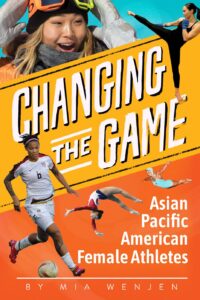 Amazon / Scholastic / Signed or Inscribed by Me
Amazon / Scholastic / Signed or Inscribed by Me
BEST #OWNVOICES CHILDREN’S BOOKS: My Favorite Diversity Books for Kids Ages 1-12 is a book that I created to highlight books written by authors who share the same marginalized identity as the characters in their books.

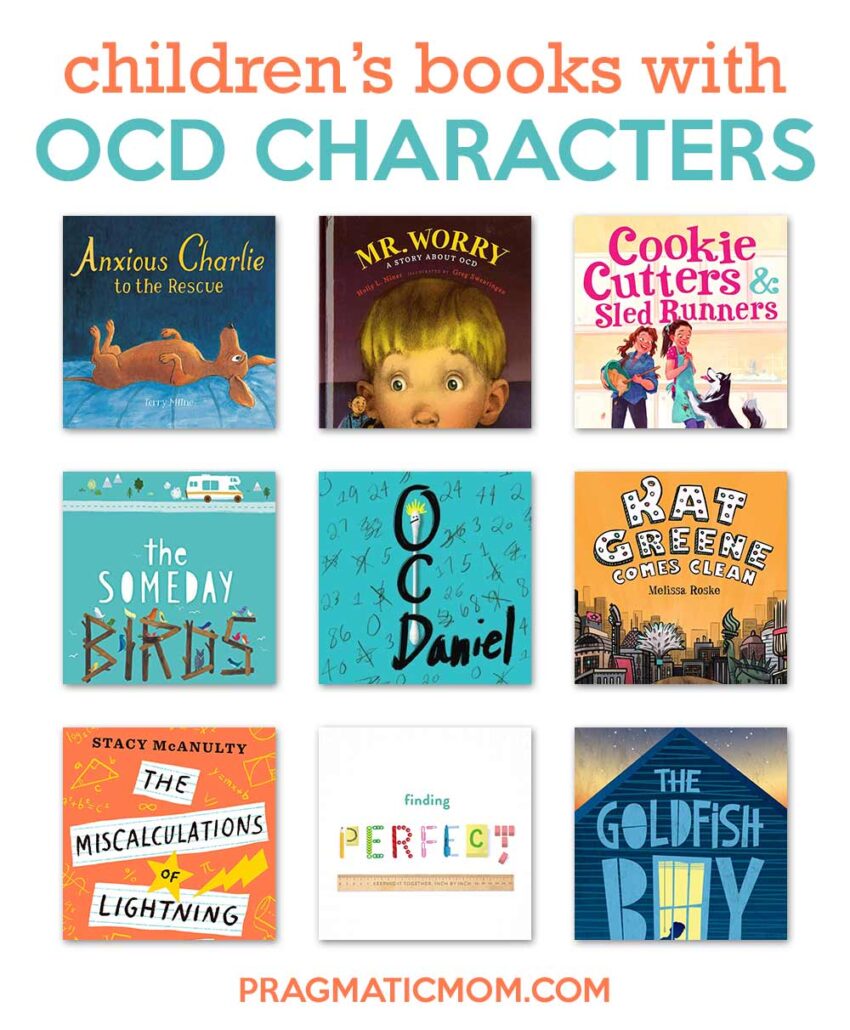
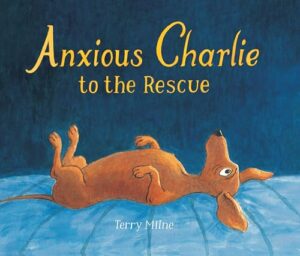
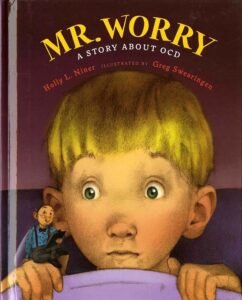
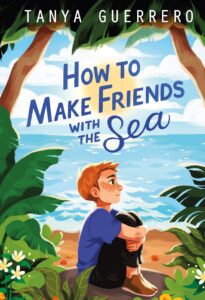
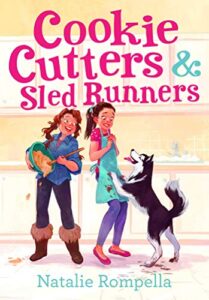
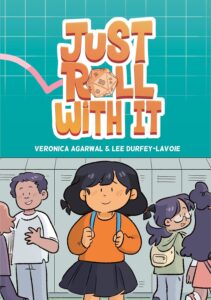
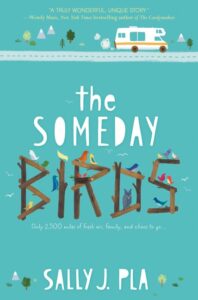
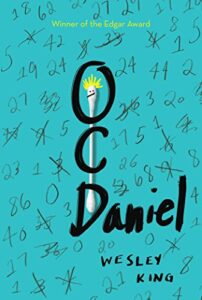
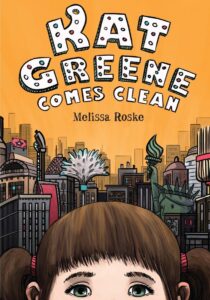
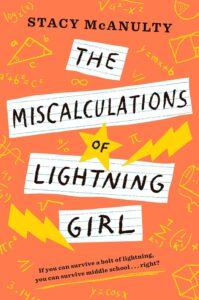
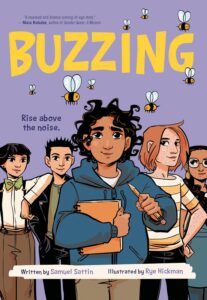
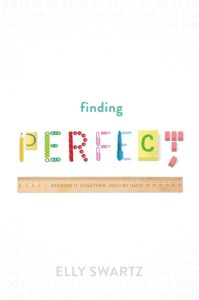
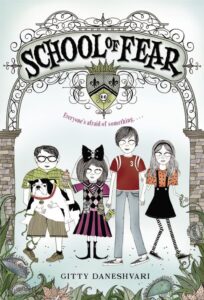
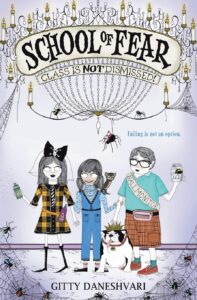
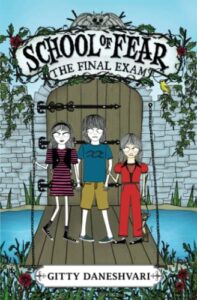
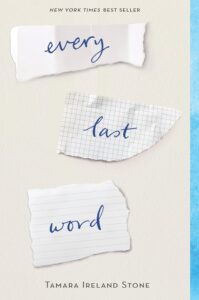
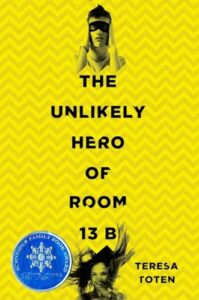
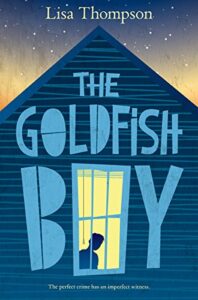
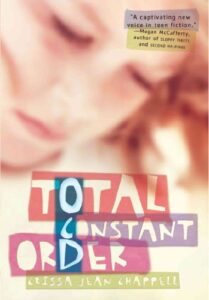
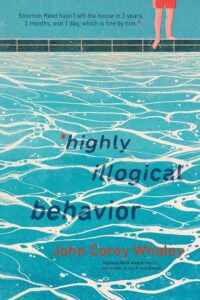
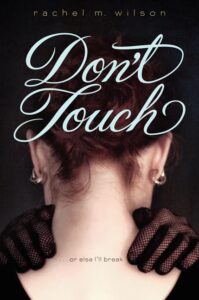
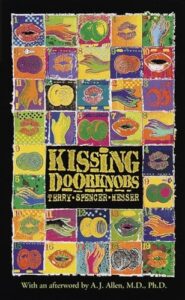
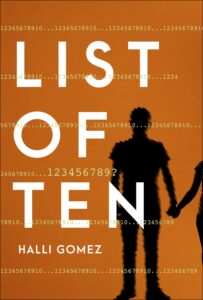
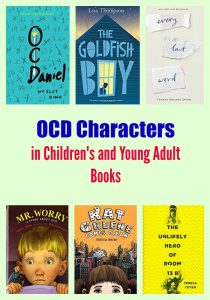
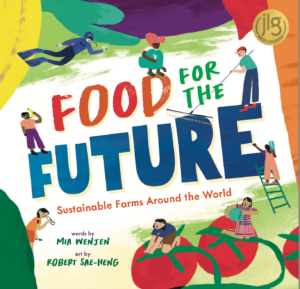
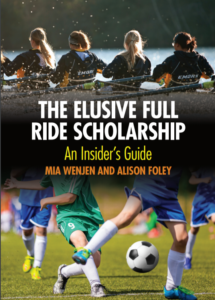

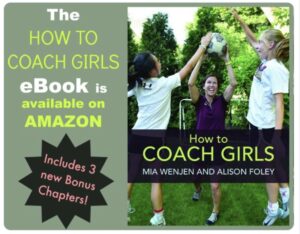


I;ve heard wonderful things about it, though I haven’t yet read it, but Elly Swartz’s Finding Perfect is another for your OCD list.
Thanks for adding to my OCD list. Someone joked that I really need to make sure this particular list is complete … bad joke…
Great suggestions of books for kids with OCD. I love Mr. Worry, but haven’t read the other ones you mentioned. I believe I reviewed another OCD book from Magination Press.
Hi Pat,
I will try to link to your post! Thanks for the heads up!
I love that you are raising awareness about this. OCD is definitely misunderstood – as I’ve learned watching people I love deal with it. I’ll look for these books from your list to read with my kids! And I really hope your son doesn’t have any long-term problems from his concussion.
Thanks so much MaryAnne,
After exactly one year, he’s recovered fully. The only weird side effect is that he’s been having stomach aches that started with one medication but probably messed up his intestines. I’m having him eat probiotics via yogurt and that’s been helping. I learned so much about OCD via these books. I hope it helps others too to understand this devastating but overlooked mental health disease.
I really liked John Green’s latest, the YA book “Turtles All the Way Down” — you get a good description of what OCD feels like in her head.
Great list and so extensive!!! Thanks for sharing.
Thanks Valarie! I’m trying to keep this one updated.
Thanks so much for sharing this important list! Last year I compiled a list of multicultural children’s books about mental health issues and sadly, there weren’t many to be found.
I hope there will be more to add in the coming years!
I hope more get published this year!